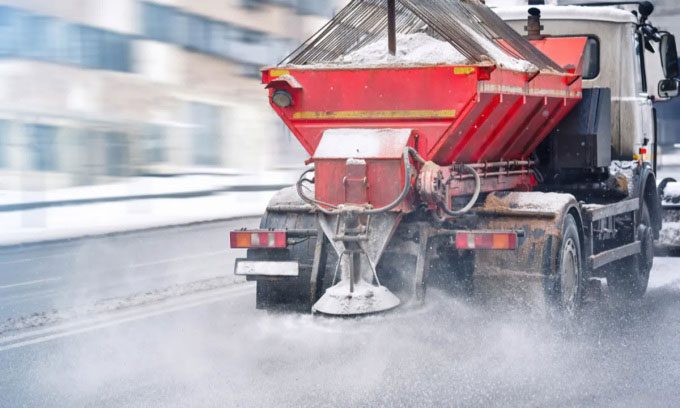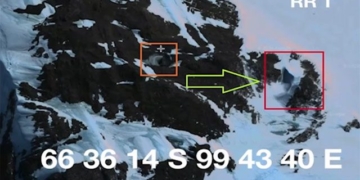The World is Becoming “Saltier”, and according to new research published in Nature Reviews Earth & Environment, this condition is caused by human activities, as reported by IFL Science on November 29. The increase in salinity alters the chemical properties of rivers, significantly affecting water quality and human health.
The Earth has a natural salt cycle, in which geological and hydrological processes, such as the weathering of rocks and minerals, bring salt to the Earth’s surface over long periods. However, in recent decades, humans have significantly accelerated this cycle through mining and land development, bringing salt to the surface faster than natural processes can. The concentration of salt ions in rivers has increased significantly over the past 50 years. Human-induced salinization affects approximately 1 billion hectares of land worldwide.

Salt spread on roads during cold seasons is one of the main causes. (Photo: Tricky Shark).
Here, salt is not just sodium chloride – the white substance sprinkled on food. In the terminology of chemists and geologists, salt refers to any chemical compound consisting of a combination of cations (positively charged ions) and anions (negatively charged ions).
“When we think of salt, people often think of sodium chloride, but our work over the years has shown that humans have disrupted other types of salts, including those related to limestone, gypsum, and calcium sulfate,” said Sujay Kaushal, the lead author of the study and a professor at the University of Maryland.
The increase in salt can cause a range of negative impacts on the environment and human health. One of the main concerns is water quality. Salt ions can bind with pollutants in soil and sediments, creating a “chemical cocktail” that circulates in the environment and contaminates water sources.
The air is also not safe from rapid salinization. As lakes dry up, an increasingly common phenomenon due to climate change, salt dust can rise into the atmosphere. The research team noted that this could negatively impact human health.
One major reason for salinization is the spreading of salt on roads during cold weather to prevent freezing. In the U.S., this accounts for 44% of total salt consumption and nearly 14% of the total dissolved solids entering rivers. Reducing the amount of salt spread on roads could be a solution, but it could also increase the number of traffic accidents.




















































